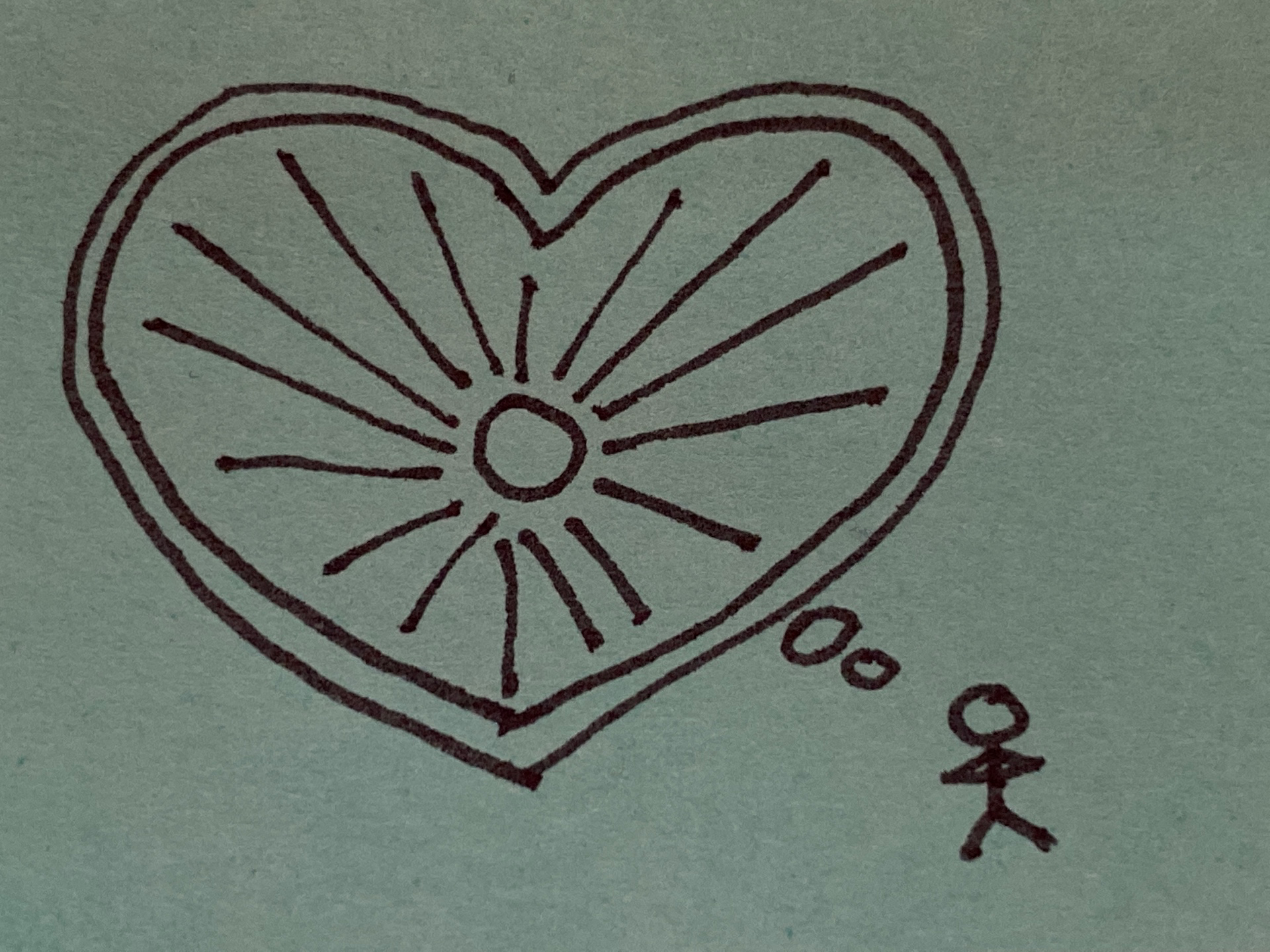Big Loves
Look for the big loves you might lose, and honor the grief you feel through action.

according the Design Revolution, we have to work together to solve our collective problems, but focusing on the problems alone is a problem in itself.
There is too much bad news and hopelessness in the world. When we try to fix the world in response to anger or fear, we look for people to blame and lose our true reason for wanting change.
“I realize that you have this very big love and you want to do some very fine things with it. But I’m afraid you won’t be able to do anything beneficial until you really start to think and get inside what’s causing this love. You are going to have to think very clearly about basics and about what moves you can make to bring about changes in the things you see wrong. It doesn’t do any good to get angry. And it doesn’t do any good for you to sit here with me unless you can find in all this something of your own to say.” – RBF to a young student, Pacific Palisades, Christmas 1971
-
Fuller talks about how the person he’s talking to has a big love. It gets to the heart of why we want to make the world better and a world that works: love for our family and descendants; love for Earth and nature; love for animals or plants or life in general; love for humanity.
-
It’s also why we have such big emotions around injustices, like pollution and extinctions. It’s why we get so angry. It’s why charities show us baby seals and starving children. It’s not guilt or some abstract moral sense, it’s what happens when we lose something we love: it’s grief. And its fundamental to who we are as a species.
-
As Martín Prachtel says in his book, The Smell of Rain on Dust, “If we do not grieve what we miss, we are not praising what we love. We are not praising the life we have been given in order to love. If we do not praise whom we miss, we are ourselves in some way dead. So grief and praise make us alive.”
-
In terms of making the world better, it’s important at that we acknowledge what we love. It’s what makes us human and what drives us to protect and restore what we could lose. It praises the life we have that allows us to love and understand and act for the good of everyone.
Therefore:
Listen to your anger, fear, sadness and frustration around what’s happening in the world and look for the big love that’s the source of your grief. Get to the heart of what you care so deeply about, and convert your grief about its potential loss into action; create the change that’s needed to save what you love.
Pay attention to your emotions—Emotion’s Source—so you can start to get clear about what you care about, then make sure it’s at the heart of your actions—Yours To Do